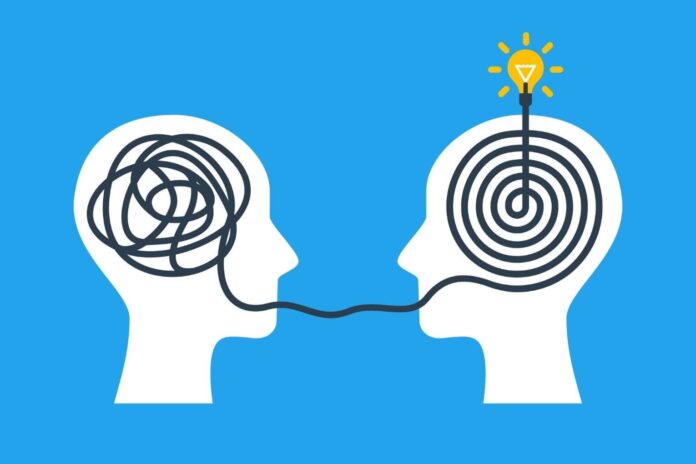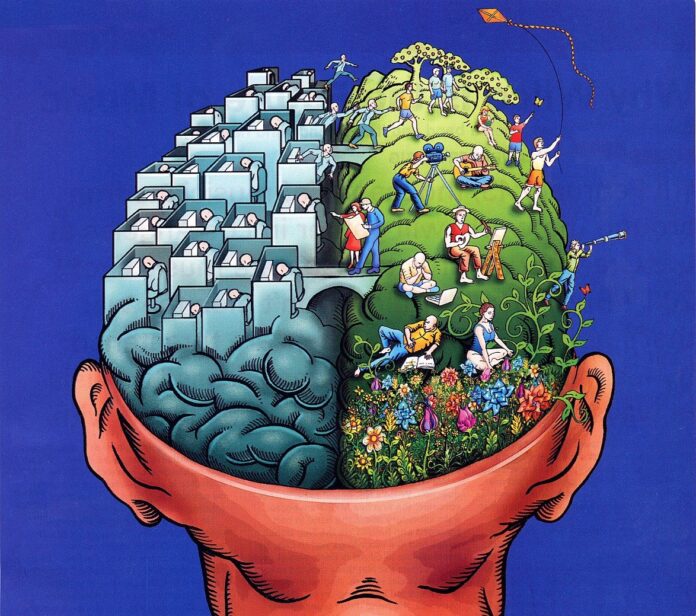You can’t find the time to study a new language? You’re just not cut out for it? Why would you need it at all? Excuses, excuses, excuses… These justifications and rationalizations serve only to make you feel better when you give up on yet another attempt to learn a new language and decide to spend your time differently instead.
Of course, it’s difficult! Nobody can argue against that. But, it’s also rather worth it. And, if you try to argue against that, then you’re, once again, using rationalization to justify your lack of motivation and determination. It even rhymes!
Some of you could also be giving up because you’re convinced that the older you get, the more difficult it is to learn a new language and that, since you haven’t done it in the past, there’s no point in doing it now. I get where such assumptions are coming from, because we have long been taught that learning is for the young and that you can’t expect your adult brain to pick up on information as quickly as a child’s brain, for example. While that may be true, given that everything is new to a child and their brains do work towards picking up on pretty much everything so as to get to know the world, here’s a true, scientific fact for you.
There’s something called plasticity of the brain, and science has found that it allows you to learn at pretty much any age. Of course, neuroplasticity won’t help you if you don’t actually sit down and do the necessary work, but the point is that learning is possible at any age, meaning that your excuse of not being young enough has now also gone down the drain. This should be good news for everyone, as it means you can gain any skill you want whenever you want, including speaking a new language.
You may not have used that particular excuse not to learn in the past, given that you may still be or feel young enough for it. Which you are! But, you may still have doubts about starting the learning process, not understanding what the benefits of mastering a new language are, and not knowing how to actually do that. Two extremely important questions, and we’ll cover them both below, hoping to provide you with the answers you need – answers that will finally push you towards the right direction and encourage you to start learning that language you’ve always wanted to master, or that you need to master for one reason or another.
This can also be of great help in the learning process: https://www.wikihow.com/Learn-a-New-Language-Fast
What Are the Benefits of Learning a New Language?

We’re going to start with the more pressing question, i.e. the one about why learning a new language is a good idea in the first place. Not understanding the benefits that come with this, or understanding them vaguely and loosely, could definitely lead to you giving up before you even get started. Since that’s precisely what we want to prevent, read on to find out more about the benefits of actually doing this.
1. You’ll Get to Talk To More People

Let’s start with a simple one. By learning a new language, you get the opportunity to connect and communicate with a lot more people, possibly making great friends along the way, just because you can understand each other. Apart from opening up a whole new world of people to talk to, the native speakers of the language you’re learning, you’ll also get to connect with other learners as well, sharing your progresses and challenges and possibly helping each other out.
2. It Opens Up More Entertainment Possibilities
Have you ever come across an amazing, say Spanish, show that you’d like to watch and that you know would provide you with some high quality entertainment, only to realize that things are getting lost in translation and that you’re not enjoying it that much? Or, have you ever found shows that haven’t even been translated and that you can’t watch due to that? Bummer! Learning a new language allows you to easily consume native media and gain access to various different TV shows, movies, books, podcasts, websites and many, many more things.
3. Traveling Is Made Easy

Going to a different country, and a different cultural setting, is both exciting and a bit scary, especially if you don’t speak the language, and you’re not sure you’ll be able to find your way around it. Well, instead of hoping that the new place you’ll be visiting will adjust to you, that is, that they will speak English, it would be a great idea for you to work towards learning their language and thus make your traveling much easier. This can be a great reason to motivate you to start learning, and although it may not be the only reason why you want to master a new language, it can definitely be a great place to start.
4. And You’ll Gain Quite an Edge in the Workplace
A lot of employers nowadays value people who speak more languages and there are reasons for it. In today’s global economy, you’ll gain quite some competitive advantage by adding languages to your resume. You’ll not only increase your chances of getting hired, but you’ll also boost chances for getting promoted and building the perfect career in your chosen field.
5. It Improves Your Overall Communication Skills

Did you know that learning a new language improves your communication skills in your native one as well? It may sound like those two things aren’t exactly connected, but they sure are. You’ll improve your listening skills, for one thing, through the learning process, which will automatically make you better at communicating in any language whatsoever. Plus, you’ll gain the ability to look at things from different angles and be much more prepared to take someone else’s perspective into consideration, making communication even easier and more successful.
6. It Makes Other Languages Even Easier
Speaking of making things easier, learning one new language opens up the doors to learning even more. Once you break the ice with the help of Language Throne or similar platforms, you most likely won’t stop after mastering just one new language. The great thing is that all the next ones will be much easier to learn after you’ve mastered the first one, which will make you even more motivated to do it.
7. It Improves Your Cognitive Functions

Cognitive functions are vastly improved through the process of learning a new language. Studies show that multilingual people tend to be more logical and focused, have better working memories and are capable of switching from task to task much more quickly, as well as make better financial decisions and exert more self-control. Those are just some of the things you can improve by deciding to master a new language, and I’m sure you like the sound of it.
8. And Makes You More Creative
This can also make you much more creative. Serious linguistic problem solving that you’ll master during the learning process will get you prepared for different kinds of problem solving scenarios. Your brain will become capable of identifying multiple solutions to one and the same problem, meaning you’ll use your creativity to get out of any tricky situation you may find yourself in. Creativity is not only about arts, although you may very well find yourself a better artist after you learn another language as well, if that’s what you’re into.
9. It Delays the Effects of Aging

Aging is a process that nobody quite likes, but that will happen nevertheless. Its effects can, however, be slowed down if you continue using your brain for learning new things well into adulthood. Stagnating and never being interested in anything new will definitely take a toll on the age of your brain, so to speak, which will reflect in your spirit and your overall appearance. So, aiming at mastering a new language can even delay the effect of aging.
10. And Boosts Your Self-Esteem
Being able to communicate in more than just your native language will certainly boost your self-esteem, especially if you tend to travel a lot. Even if you’re not planning on leaving your hometown, this can definitely have a positive effect on your self-confidence. So, there’s another reason for you to do it!
How to Do It?
Having heard enough reasons to do it, you’re not most probably wondering how to actually do it. While there are numerous different methods you can try, and tricks you can use to stay motivated and keep on studying, the best thing to do is find a language learning platform and use it to the fullest. This way, you won’t only stay motivated by monitoring your progress, but you’ll also have all the materials you need, and you won’t get stuck, not knowing what to focus on next during your studying process. You’ll have all the resources you need ready at hand, and you’ll get a systemic and organized studying approach that will keep you on track.
Of course, the trick is in finding the right platform, meaning you’ll have to check out and research quite a few of those before making up your mind. Taking a look at the materials and resources they offer and finding comments that previous students have left will help you figure out which platforms could be right for you and which ones may be lacking in certain aspects. Comparing your findings will ultimately lead to making the best possible choice and finally mastering that new language.








